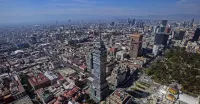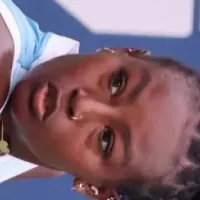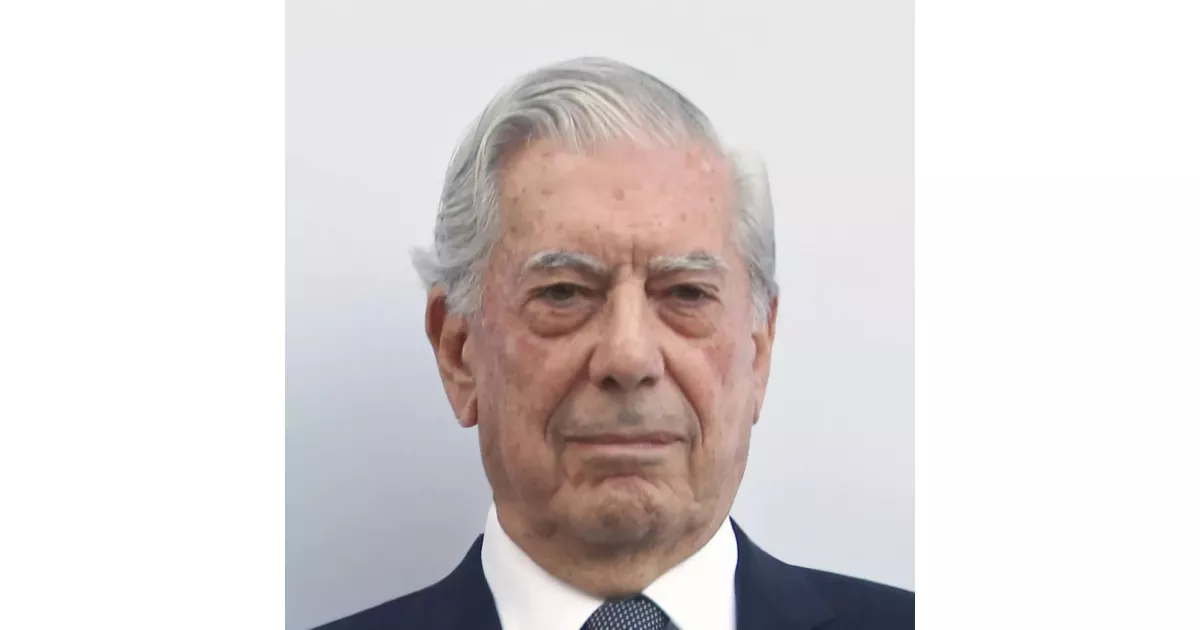From career breakthroughs to professional milestones, explore how Mario Vargas Llosa made an impact.
Mario Vargas Llosa, a Peruvian novelist, journalist, essayist, and former politician, stands as one of Latin America's most influential writers. A leading figure of his generation, some critics believe he achieved a wider international reach than others associated with the Latin American Boom. He received the Nobel Prize in Literature in 2010 for his exploration of power structures and his portrayal of individual resistance. Other accolades include the Rómulo Gallegos Prize, Prince of Asturias Award, Miguel de Cervantes Prize, and Jerusalem Prize. In 2021, he was elected to the Académie française, solidifying his literary legacy.
1957: Publication of First Short Stories
In 1957, Vargas Llosa began his literary career in earnest with the publication of his first short stories, "The Leaders" and "The Grandfather."
1959: Wins Premio Leopoldo Alas
In 1959, Vargas Llosa won the Premio Leopoldo Alas.
1962: Wins Premio Biblioteca Breve
In 1962, Vargas Llosa won the Premio Biblioteca Breve.
1963: Publication of 'The Time of the Hero'
In 1963, Vargas Llosa published "The Time of the Hero (La ciudad y los perros)".
1963: Publication and Controversy of 'The Time of the Hero'
In 1963, Vargas Llosa's first novel, "The Time of the Hero (La ciudad y los perros)", was published, gaining wide public attention and immediate success but also sparking controversy due to its criticism of the Peruvian military.
1965: Publication of 'The Green House'
In 1965, Vargas Llosa published "The Green House (La casa verde)".
1966: Publication of 'The Time of the Hero' in English
In 1966, the english version of "The Time of the Hero (La ciudad y los perros)" was published.
1968: Publication of 'The Green House' in English
In 1968, the english version of "The Green House (La casa verde)" was published.
1969: Lectured at King's College London
From 1969 to 1970, Vargas Llosa lectured on Spanish American Literature at King's College London.
1969: Publication of 'Conversation in The Cathedral'
In 1969, Vargas Llosa published "Conversation in The Cathedral (Conversación en La Catedral)".
1970: Lectured at King's College London
From 1969 to 1970, Vargas Llosa lectured on Spanish American Literature at King's College London.
1971: Published García Márquez: Story of a Deicide
In 1971, Vargas Llosa published "García Márquez: Story of a Deicide (García Márquez: historia de un deicidio)", his doctoral thesis.
1973: Publication of 'Captain Pantoja and the Special Service'
In 1973, Vargas Llosa published "Captain Pantoja and the Special Service (Pantaleón y las visitadoras)".
1974: Focused on Writing
From 1974 to 1987, Vargas Llosa focused on his writing and pursued other endeavors.
1975: Co-Directed Captain Pantoja and the Secret Service adaptation
In 1975, Vargas Llosa co-directed an unsuccessful motion-picture adaptation of his novel, "Captain Pantoja and the Secret Service".
1975: Publication of 'Conversation in The Cathedral' in English
In 1975, the english version of "Conversation in The Cathedral (Conversación en La Catedral)" was published.
1976: Elected President of PEN International
In 1976, Vargas Llosa was elected President of PEN International.
1977: Publication of 'Aunt Julia and the Scriptwriter'
In 1977, Vargas Llosa published "Aunt Julia and the Scriptwriter (La tía Julia y el escribidor)".
1977: Elected to Peruvian Academy of Language and Published Aunt Julia and the Scriptwriter
In 1977, Vargas Llosa was elected as a member of the Peruvian Academy of Language and published "Aunt Julia and the Scriptwriter (La tía Julia y el escribidor)".
1977: Simón Bolívar Professor
In 1977–78, Vargas Llosa was Simón Bolívar Professor and an Overseas Fellow of Churchill College at the University of Cambridge.
1978: Publication of 'Captain Pantoja and the Special Service' in English
In 1978, the english version of "Captain Pantoja and the Special Service (Pantaleón y las visitadoras)" was published.
1979: Left the Presidency of PEN International
In 1979, Vargas Llosa left the Presidency of PEN International.
1981: Publication of "The War of the End of the World"
In 1981, Vargas Llosa published his fourth major novel, "The War of the End of the World", his first attempt at a historical novel, marking a shift towards themes of messianism and irrational behavior. The novel recreates the War of Canudos in 19th-century Brazil and explores humanity's idealization of violence, garnering substantial recognition, though initially poorly received in Brazil due to the author's foreign perspective.
1982: Publication of 'Aunt Julia and the Scriptwriter' in English
In 1982, the english version of "Aunt Julia and the Scriptwriter (La tía Julia y el escribidor)" was published.
1983: Completes "The Real Life of Alejandro Mayta" and joins Investigatory Commission
In 1983, Vargas Llosa finished writing "The Real Life of Alejandro Mayta", which focuses on a leftist insurrection in Jauja. Later in 1983, he joined the Investigatory Commission to inquire into the massacre of eight journalists in Uchuraccay, at the request of Peruvian President Fernando Belaúnde Terry.
1983: Essays and journalism collected as Contra viento y marea Volume 1
In 1983, Vargas Llosa's essays and journalism were collected as Contra viento y marea Volume 1.
1984: Publication of "The Real Life of Alejandro Mayta"
In 1984, Vargas Llosa's novel, "The Real Life of Alejandro Mayta", was published. The novel centers around a leftist insurrection that occurred on May 29, 1962, in the Andean city of Jauja.
1986: Completes "Who Killed Palomino Molero"
In 1986, Vargas Llosa completed his novel "Who Killed Palomino Molero", a mystery inspired by his experiences with the Uchuraccay investigation. The novel is described as a "literary exorcism" of Vargas Llosa's experiences during the commission.
1986: Essays and journalism collected as Contra viento y marea Volume 2
In 1986, Vargas Llosa's essays and journalism were collected as Contra viento y marea Volume 2.
1987: Focused on Writing
From 1974 to 1987, Vargas Llosa focused on his writing and pursued other endeavors.
1987: Considered the most controversial Latin American novelist
In 1987, literary critic Gerald Martin considered Vargas Llosa "perhaps the most successful ... certainly the most controversial Latin American novelist of the past twenty-five years".
1990: Presidential Run
In 1990, Vargas Llosa ran for the Peruvian presidency with the center-right Frente Democrático coalition, advocating for liberal reforms, but lost to Alberto Fujimori.
1990: Essays and journalism collected as Contra viento y marea Volume 3
In 1990, Vargas Llosa's essays and journalism were collected as Contra viento y marea Volume 3.
1990: Adaptation of Aunt Julia and the Scriptwriter
In 1990, the novel "Aunt Julia and the Scriptwriter" was adapted into a Hollywood feature film, Tune in Tomorrow.
1993: Account of Presidential Run in Memoir
In 1993, Vargas Llosa included an account of his run for the presidency in the memoir A Fish in the Water.
1993: Inspiration for Death in the Andes
In 1993, Vargas Llosa published the novel, Death in the Andes. The tragic events at Uchuraccay inspired the novel.
2000: Publication of "The Feast of the Goat"
In 2000, Vargas Llosa's political thriller, "The Feast of the Goat", was published, depicting the effects of authoritarianism, violence, and abuse of power, based on the dictatorship of Rafael Trujillo in the Dominican Republic from 1930 until his assassination in 1961.
2001: English publication of "The Feast of the Goat"
In 2001, the English version of Vargas Llosa's "The Feast of the Goat" was published. The book quickly received positive reviews in Spain and Latin America, and has had a significant impact in Latin America, being regarded as one of Vargas Llosa's best works.
2002: Wins PEN/Nabokov Award
In 2002, Vargas Llosa was the recipient of the PEN/Nabokov Award.
2003: Writes "The Way to Paradise"
In 2003, Vargas Llosa wrote "The Way to Paradise", in which he studies Flora Tristan and Paul Gauguin.
2005: Receives Irving Kristol Award
In 2005, Vargas Llosa received the Irving Kristol Award from the American Enterprise Institute.
2006: Writes "The Bad Girl"
In 2006, Vargas Llosa wrote "The Bad Girl", a novel argued to be a rewrite of Gustave Flaubert's "Madame Bovary". The plot revolves around a Peruvian expatriate's decades-long obsession with a woman he loved as a teenager.
2008: Receives Harold and Ethel L. Stellfox Award
In 2008, Vargas Llosa received the Harold and Ethel L. Stellfox Visiting Scholar and Writers Award at Dickinson College.
October 2010: Awarded Nobel Prize in Literature
On October 7, 2010, the Swedish Academy announced that Vargas Llosa was awarded the 2010 Nobel Prize in Literature "for his cartography of structures of power and his trenchant images of the individual's resistance, revolt, and defeat."
November 2010: Receives honorary degree from City College of New York
On November 18, 2010, Vargas Llosa received an honorary degree Degree of Letters from the City College of New York and delivered the President's Lecture.
2019: Publication of "Tiempos recios" ("Harsh Times")
In 2019, Vargas Llosa published the novel "Tiempos recios" (translated as "Harsh Times"), which is about the 1954 coup in Guatemala.
November 2021: Elected to the Académie française
On November 25, 2021, Vargas Llosa was elected to the Académie française.
Mentioned in this timeline
The Dominican Republic is a Caribbean nation sharing the island...

Football is a family of team sports primarily involving kicking...
France officially the French Republic is primarily located in Western...

Mexico City is the capital and largest city of Mexico...

Books are a means of storing information as text or...
Spain officially the Kingdom of Spain is located in Southern...
Trending
9 minutes ago Falcons Secure Kyle Pitts with Franchise Tag, Ending 49ers Interest.
1 hour ago Fenerbahçe vs. Kas?mpa?a Match Live, Kante's Demand After Performance

1 hour ago Alycia Parks faces Oksana Selekhmeteva in the 2026 ATX Open First Round.
1 hour ago Aldi Frozen Meatballs Recalled Nationwide Due to Metal Fragment Contamination Risk
1 hour ago Social Security Payment Schedule Changes and Delays Explained for February and March 2026

1 hour ago Peter Mandelson arrested amid Epstein probe, facing misconduct accusations in the UK.
Popular

Jesse Jackson is an American civil rights activist politician and...

Barack Obama the th U S President - was the...

Bernie Sanders is a prominent American politician currently serving as...

Michael Joseph Jackson the King of Pop was a highly...
The Winter Olympic Games a major international multi-sport event held...

Michael Jordan widely considered one of basketball's greatest players significantly...













